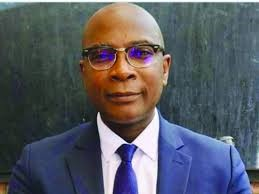Indigenous company dumped for Indian company
Local Content Under Attack
By Macksall
The procurement process for the Primary Two books, recently managed by the Free Education Project Secretariat (FEPS), raises serious concerns about transparency and fairness. As the project’s supposed implementation unit (PIU), FEPS is responsible for executing projects funded by various donors, notably the World Bank the largest supporter of Sierra Leone’s education sector. However, recent procurement activities suggest a troubling pattern of irregularities that merit immediate scrutiny, especially by the Anti-Corruption Commission (ACC).

Since its inception, FEPS has been tasked with managing crucial educational projects, including textbook procurement for primary schools. Unfortunately, the history of these projects has been marred by turbulence, with several contracts either failing to be completed or facing controversy, primarily related to procurement procedures. Concerns persist about a recurring pattern of irregularities that undermine the integrity of the procurement process, threaten value for money, and erode public trust.
In the latest procurement exercise for Primary 2 textbooks, credible reports indicate that the process was compromised from the outset. The procurement specialist of FEPS, who was supposed to serve as the secretary to the procurement committee, surprisingly ended up becoming the chairman of the same committee by his actions. This individual not only presided over the proceedings but also actively analyzed bids and dictated scores a clear conflict of interest that undermines fairness.

Most concerning is the fact that the evaluation and scoring process appeared to be influenced, favoring an Indian company, Pitambra Books Pvt. Ltd. It is alleged that the same company previously benefitted from a contract for Primary 1 textbooks. Initially, Pitambra’s bid was significantly lower, based on the single-stage bidding process that emphasizes the lowest bid. However, shortly after evaluation, the bid was adjusted upward by a substantial margin—closer to the second lowest bidder by a margin that raises questions about the transparency and fairness of the process.
This sequence of events is not isolated. Similar patterns of bid adjustments, biased scoring, and irregular contract awards have been observed across multiple procurement cycles managed by FEPS. Such trends suggest a systemic problem a pattern of manipulation that disadvantages local bidders and favors well-connected foreign companies. These practices undermine the principles of fair competition, transparency, and value for money, which should be the foundation of donor-funded projects.

Given the gravity of these allegations, the Anti-Corruption Commission (ACC) must urgently take investigative action. The patterns emerging at FEPS point to potential breaches of procurement laws and possible corrupt practices. An independent investigation is crucial to establish whether procurement procedures have been compromised, and to hold those responsible accountable.
It is imperative that the government, in cooperation with donors like the World Bank, and oversight institutions like the ACC, conduct a thorough review of procurement processes at FEPS. Strengthening procurement oversight, enforcing strict adherence to established guidelines, and preventing conflicts of interest are essential steps toward restoring transparency and public confidence.

The alleged irregularities at FEPS concerning the Primary 2 books procurement are a serious matter that threatens the integrity of Sierra Leone’s education sector and the effective use of donor funds. The ACC’s prompt intervention is necessary to investigate these patterns, prevent further misconduct, and ensure that future procurements are transparent, fair, and accountable. Sierra Leone must safeguard its educational resources and protect the interests of its children by rooting out corruption and reinforcing integrity in all procurement practices.